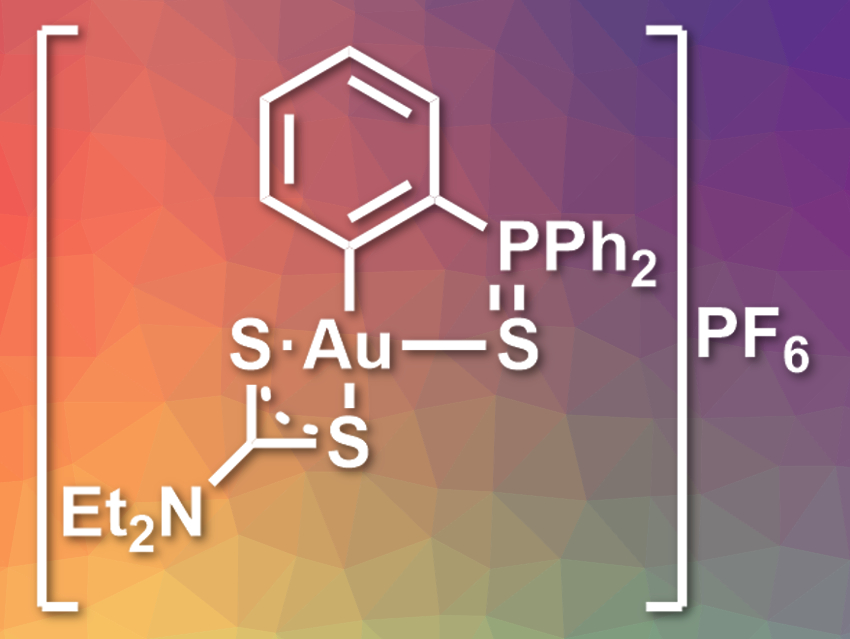Cisplatin, a diamminedichloridoplatinum(II) complex, is an approved anticancer medication. Gold, another noble metal, might also be useful in metal-based cancer therapeutics. However, gold complexes—particularly Au(III) complexes—are vulnerable to reduction. A cyclometalated structure could lead to improved stability and help to avoid unwanted redox reactions.
Nedaossadat Mirzadeh, Suresh K. Bhargava, RMIT University, Melbourne, Australia, and colleagues have prepared a series of stable gold(III)-based complexes with cyclometalated triphenylphosphine sulfide ligands (example pictured) for anticancer applications. The team synthesized [AuCl2{κ2-2-C6H4P(S)Ph2}], [Au(κ2-S2CNEt2){κ2-2-C6H4P(S)Ph2}]PF6 (pictured), [AuCl(dppe){κC-2-C6H4P(S)Ph2}]Cl, and [Au(dppe){κ2-2-C6H4P(S)Ph2}][PF6]2 (dppe = 1,2-bis(diphenylphosphino)ethane) starting from [Bu4N][AuCl4] and Me3SnC6H4P(S)Ph2.
The team found several of the compounds are stable in solution for at least three days. Three of the complexes show cytotoxicities in vitro against five human cancer cell lines that are comparable with cisplatin. According to the researchers, the mechanism of action of the complexes involves the induction of apoptosis (programmed cell death) through the accumulation of reactive oxygen species (ROS). [Au(κ2-S2CNEt2){κ2-2-C6H4P(S)Ph2}]PF6 (pictured) also showed promising anticancer activity in mice with grafts of human cervical tumor cells.
- Antitumor and Antiangiogenic Properties of Gold(III) Complexes Containing Cycloaurated Triphenylphosphine Sulfide Ligands,
T. Srinivasa Reddy, Steven H. Privér, Nedaossadat Mirzadeh, Rodney B. Luwor, Velma Ganga Reddy, Shwathy Ramesan, Suresh K. Bhargava,
Inorg. Chem. 2020.
https://doi.org/10.1021/acs.inorgchem.0c00423




